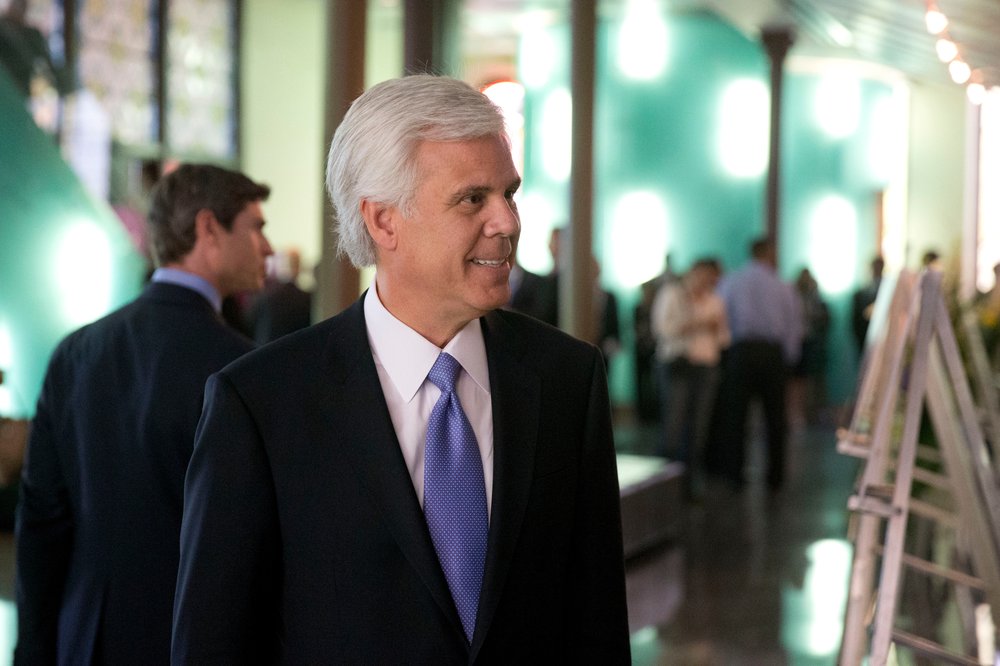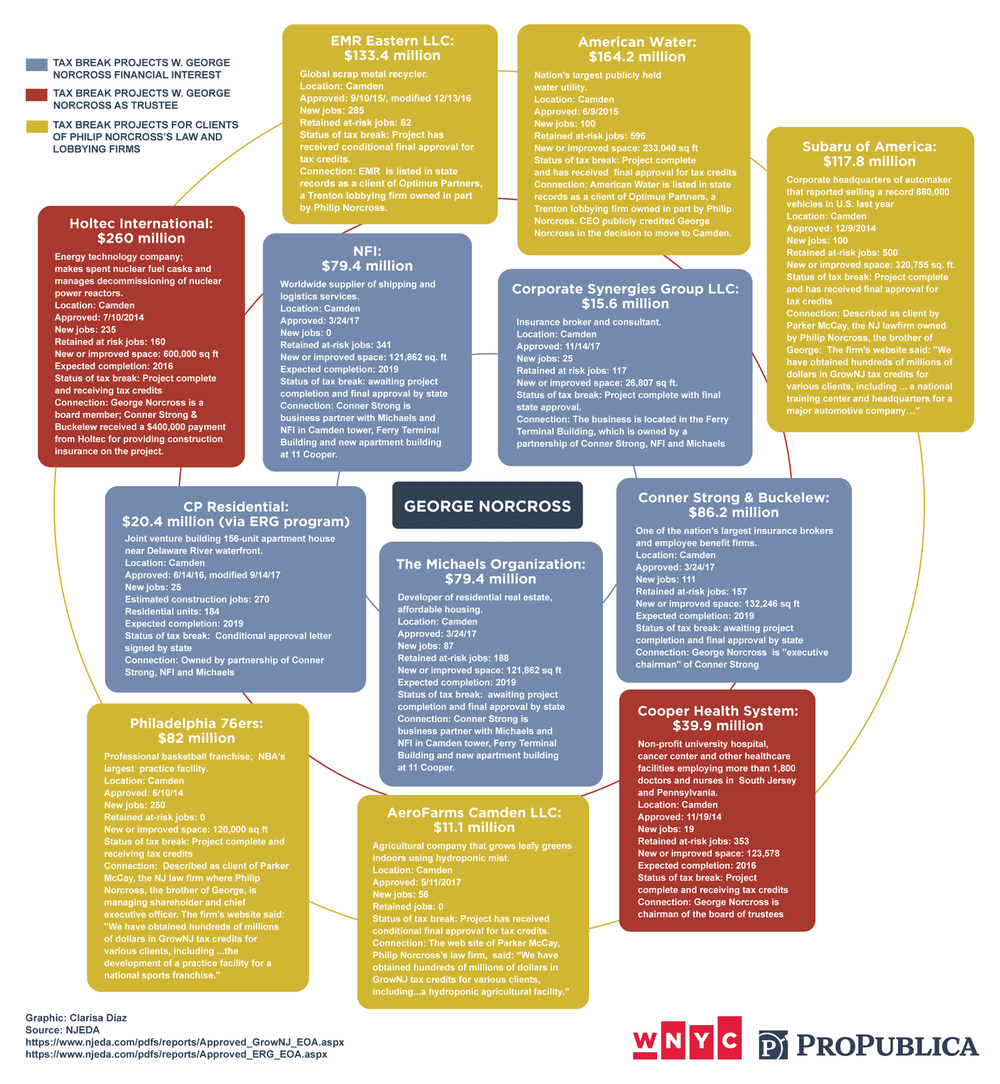NJ Task Force Freezes $578 Million In Tax Breaks, Referring To Criminal Investigators
July 10, 2020, 11:28 a.m.
Some of the firms under investigation are tied to a South Jersey party boss.

A dozen companies that won controversial tax breaks from the state of New Jersey have had their credits suspended and are under investigation, according to a final report drafted by a task force created by Gov. Phil Murphy released Thursday.
The Murphy administration has put a freeze on $578 million worth of tax breaks awarded by the New Jersey Economic Development Authority formed under former Governor Chris Christie, and some of those companies are under criminal investigation, according to Jim Walden, lead investigator for the Governor’s Task Force on EDA Tax Incentives.
Murphy created the task force last year after a state comptroller’s report found problems with the size of the tax breaks and a lack of oversight at the EDA. An investigation by WNYC and ProPublica last year found that more than a $1 billion worth of tax breaks went to companies in Camden connected to the powerful Democratic party boss George Norcross.

Walden says he has referred several companies to law enforcement, but he didn’t specify which ones or what possible charges the companies may face. He said the investigations are still active.
"All I can say is that they are — how can I put this? — amply resourced, heavily staffed, and appear to be taking our reports very seriously,” Walden said of the investigators on the case.
Of the 12 companies, five are connected to Norcross and represent the vast majority of the dollars -- $540 million of the $578 million total -- that have been frozen by the EDA.
The program was created in 2013 under Christie, a Republican, and it was heavily influenced by the law firm run by Norcross’s brother, Philip, the report says. The program doled out $1.6 billion to companies that moved to George Norcross’s hometown of Camden, including his insurance company. Philip law firm, Parker McCay, represented many of the companies that received tax breaks.
The task force report also criticized another group of transactions that did not involve Norcross. Many of those companies all provided the same out-of-state location where they claimed they would move if they didn’t get a tax break -- Blue Hill Plaza in Rockland County, just over the border in New York. There were so many of these applications, according to the report, that EDA staff would refer to it as “the famous” Blue Hill Plaza, or “Old Faithful.”
Listen to Nancy Solomon's report on WNYC:
But the applications were approved, raising questions about whether companies falsified their claim that they would move out of state if they didn’t get a tax break. Those companies were represented by lobbyists from firms such as KPMG, CBRE, and Cushman & Wakefield.
The task force said lobbyists and politically connected lawyers had too much influence over the EDA.
“The EDA has in some instances had a close relationship with incentives consultants who frequently represented companies that appeared before the EDA,” the report said.
As one example of the cozy relationship between the EDA and private lobbyists,, the report says that shortly after the legislation was enacted in 2013, the EDA’s then president and chief operating officer, Tim Lizura, gave a presentation to a business development group with Kevin Sheehan, a lawyer at Philip's law firm. The final slide of the presentation offered Sheehan’s contact info.
The task force report said EDA staff members had little authority to stop the influence that companies and their consultants had with the Christie administration, members of the state legislature and the EDA Board of Directors.
The task force recommended that all consultants register as lobbyists, and it called for ethics guidelines to regulate the amount of influence they have within the EDA.
In addition to Parker McCay, the report also lists other consultants who shepherded projects that are now under review, including the accounting firm KPMG. The report also recommends the state put a limit on the size of all tax breaks, that the EDA put a standard fraud detection system in place, and that that law be rewritten to protect the staff from political corruption and influence.
“A lot of the defects that we found in the process stem from the fact that there was this overwhelming impetus, certainly after the Economic Opportunity Act of 2013, to get this money flowing,” said Ronald Chen, the chair of the task force and formerly the dean of Rutgers Law School. “We have to give the EDA the resources and robust systems to give the staff the ability to say no."
The final report comes just days after Murphy won a lawsuit filed by George Norcross that argued the governor did not have the authority to create the task force and investigate the tax breaks.
“I had no idea of the ugly reality waiting to be uncovered,” Murphy said in a written statement. “This administration will not tolerate fraud or self-dealing and we will ensure that every dollar of taxpayer money is spent wisely and effectively. Moving forward any incentives offered must produce the number of promised jobs for our state.”
A spokesman for George Norcross said there was nothing in the final report that would justify withholding the tax break from his insurance company, Conner Strong & Buckelew.
“The firm has substantially exceeded the number of jobs it promised to bring to Camden, complied with every request and requirement of the EDA and looks forward to the ultimate approval of its incentives,” said Norcross spokesman Dan Fee.